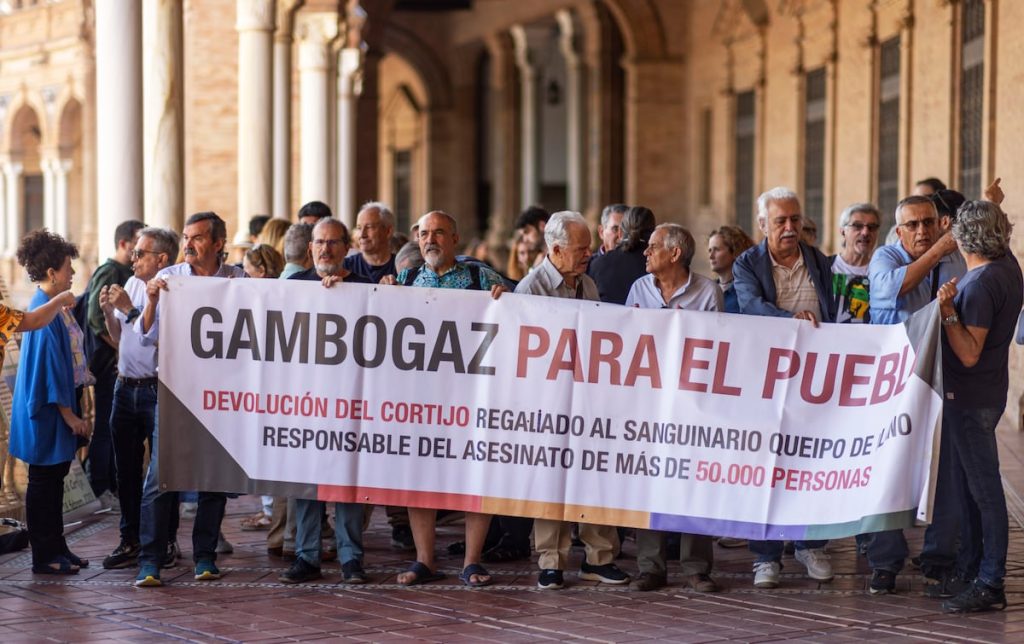For six years, anonymous citizens from various memorial platforms have independently investigated documentation proving that the Gambogaz farmhouse in the town of Camas, Seville, was fraudulently acquired by the coup leader General Gonzalo Queipo de Llano. They have gathered valuable evidence and now believe it is time to hand over the information to the State. They are calling for the possibility of taking legal action to expropriate the property, where forced labor was used, and transfer it to public ownership. The Platform Gambogaz representatives have formally requested the Secretariat of Democratic Memory to initiate an investigation similar to the one regarding Franco’s summer residence, Pazo de Meirás, so that the property can be transferred to public heritage.
The members of the Platform have been joined by professional historians in their research. They have gathered a significant amount of evidence that Queipo de Llano acquired the property through fraudulent means. They are requesting that the State consider the documents they have collected and determine the legal avenues available to bring the case to court. However, unlike the case of Meirás, Gambogaz is a private property, making it more complex to follow a similar process. They are urging the Secretariat of Democratic Memory to involve a commission of legal experts to explore possible legal loopholes for the case to move forward.
The Platform has identified two possible legal avenues to demonstrate that public funds were used and a public foundation was misused during the acquisition of the property. The first avenue involves a mortgage of 750,000 pesetas on the property when Queipo de Llano bought it with funds raised through a public donation. However, there is no evidence that Queipo ever paid off the mortgage, suggesting irregularities in the transaction. The second avenue involves a foundation Queipo established at the time of the purchase, where he pledged to pay two million pesetas that do not appear in any official records. These discrepancies indicate possible fraudulent activities in the acquisition of Gambogaz.
The Platform believes that Gambogaz represents a larger issue of looting by the fascist forces in Andalusia during the Spanish Civil War. They argue that the property should be transferred to public ownership as it was acquired through illicit means by a figure responsible for mass atrocities. The current owners of Gambogaz are descendants of Queipo de Llano, who are in favor of transforming the property into a public memorial site. The Platform is also considering legal measures to clarify the ownership of the property and potentially transfer it to public heritage. Despite facing obstacles due to regional laws restricting access to certain documentation, they have received support from historians such as Paul Preston and have documented instances of forced labor on the property.
In conclusion, the members of the Platform Gambogaz are determined to shed light on the illicit acquisition of the Gambogaz farmhouse by General Gonzalo Queipo de Llano and transfer the property to public ownership. They have gathered substantial evidence over the past six years and are now seeking State intervention to initiate legal proceedings. By highlighting the fraudulent activities surrounding the acquisition of the property, they hope to uncover more cases of historical injustice and contribute to the preservation of democratic memory in Spain. The involvement of professional historians and legal experts is crucial in navigating the complex legal challenges posed by the case.


